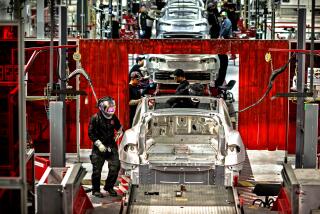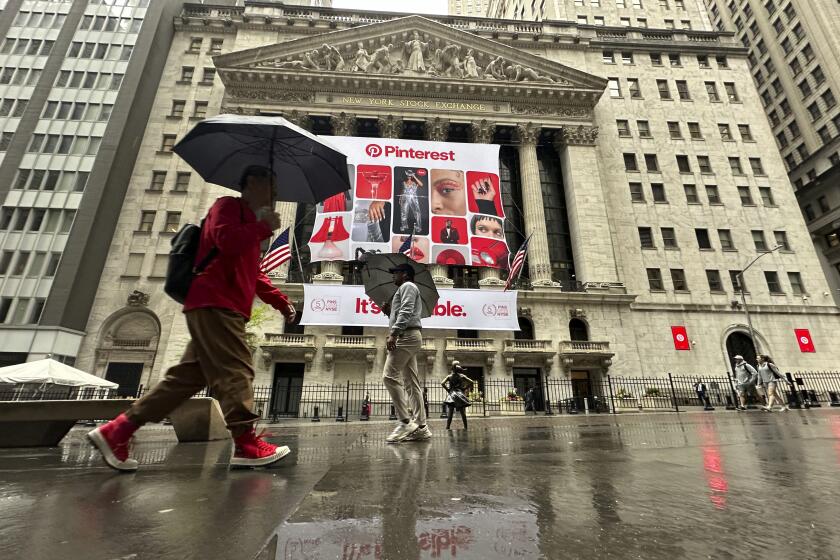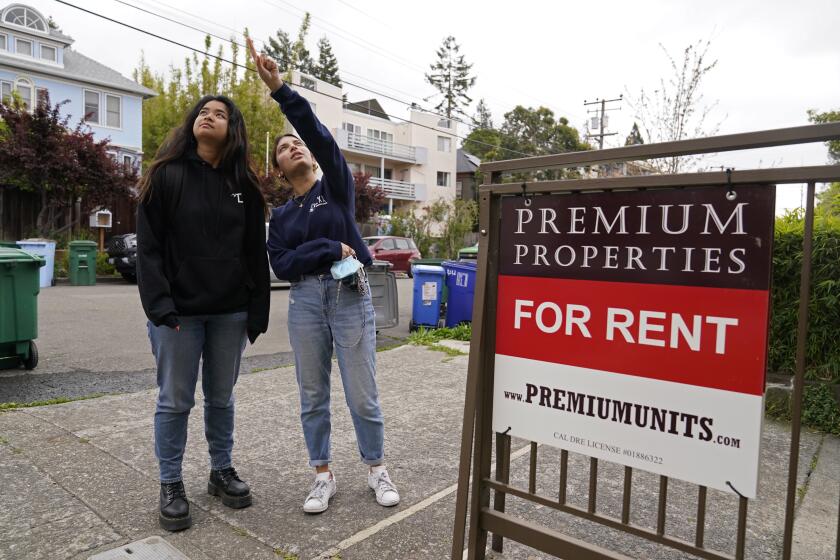Closing Bell Rings End of Era at Pacific Exchange
The final day of trading on the Pacific Exchange’s Los Angeles stock-trading floor Friday wasn’t much different from other days in recent years.
Trading activity was light. Few traders showed up. And the ones who did spent more time chatting than buying and selling stocks.
Though never a major force among the nation’s stock exchanges, the Pacific became an even smaller player in recent years.
That is prompting the exchange to dump its L.A. and San Francisco stock-trading floors in favor of an electronic trading format.
“It’s the close of an era,” said Tom Connaghan, president of the exchange’s stock division. “The curtain is coming down on part of the financial fabric of Los Angeles. It’s sentimental, but this day was inevitable.”
Though it had been scheduled for several months, the closure still evoked sadness among traders, many of whom had spent their entire careers on the floor.
A farewell party for former traders Thursday was expected to draw 100 people and last for two hours. Instead, 350 people showed up and stayed for four hours.
On Friday, remaining traders packed boxes and talked of the exchange’s more vibrant days.
“We had a community of people who had been together for years and years. Now, it all ends,” said Todd Geyer, 43, who has spent his 17-year career on the floor.
All 19 of the exchange’s L.A. workers, some of whom had been there for three decades or more, will lose their jobs by the end of June, when the exchange leaves its Beaudry Avenue facility. As the closing bell sounded at 1:30 p.m., they tossed confetti into the air. Afterward, they exchanged hugs and broke into tears.
Traders recalled the 1980s and early 1990s when the floor buzzed with activity whenever the stock market was shooting up or down.
“You could see when the market was heating up,” said Larry McNamee, who came to the floor shortly after the 1987 crash. “All the printers started cranking, and all the floor brokers started shouting.”
Most traders are transferring to their firms’ in-house trading desks or to newly constructed trading floors in nearby office buildings. Although they’ll be doing the same tasks, the feel of the job will be vastly different from working on the exchange floor, they say.
“I’ll miss the atmosphere,” said Oliver Rheinfurth, who traded General Motors and other stocks at Post 14. “There was a lot of interaction and personal activity. Now, you’re going to be doing things strictly by machine. That’s ‘progress.’ ”
Rheinfurth came to the floor three months ago, even though he knew it was closing. He left a job at another firm’s in-house trading desk for the chance to work at the exchange.
“This is what I wanted to experience. I wish I had done it a long time ago,” he said.
The L.A. trading floor began in 1899 as the Los Angeles Oil Exchange so local investors could swap shares of that era’s hot stocks.
But the stock operation has foundered in recent years.
Pending the approval of the Securities and Exchange Commission, Archipelago Holdings, a Chicago electronic trading firm, will run the Pacific Exchange’s stock-trading as a purely online operation.
The Pacific took several steps to rescue the stock business in the late 1990s, including a failed merger attempt with another exchange.
Given the stock unit’s deteriorating condition, the Archipelago deal is smart, analysts say.
“They’ve made some bets, and they haven’t paid off,” said Robert Battalio, a stock-exchange expert at Notre Dame. “[But] maybe they saved their best move for last.”






